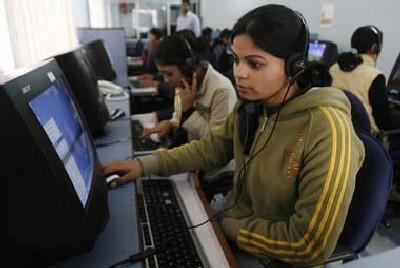 | « Back to article | Print this article |
Can the government muzzle websites?
Kapil Sibal, information technology and telecommunication minister, told reporters on Wednesday the government intended to create new rules to disable offensive content from Internet sites.
Legal experts say under existing Indian cyber laws, Sibal cannot do much harm to Google, Yahoo, Facebook or the like. They are not so clear on whether it can be done, or to what extent.
Prior to 2008, under the Information Technology Act, an intermediary (social networking sites fall under this definition) was liable for third-party content unless it could show the offence was committed without its knowledge or despite its efforts. That was why in 2004, the Delhi Police arrested the Baazee.com CEO, Avnish Bajaj, for the sale of a mobile phone sex clip via his auction site.
Baazee, with thousands of online merchants, had an automated keyword scanning system in place that could not have possibly filtered the title of the sex clip that was labeled as 'Delhi girls having fun'.
Click NEXT to read more...
Can the government muzzle websites?
However, after revamp of the IT Act in 2008, intermediaries are not liable for any third-party information, data or communication link made available or hosted by them. "Under Indian law, such sites cannot be held liable for third-party content that they merely transmit and which does not originate from such sites themselves.
If shown that the sites failed to exercise due diligence while regulating the content posted by its users, they can be held liable. The onus is on such sites to be vigilant and have efficient mechanisms in place for reviewing the items posted and to remove offensive or abusive ones," says Ramesh K Vaidyanathan, partner, Advaya Legal.
Intermediaries, by definition, include web-hosting providers that would include companies like Amazon, cyber cafes, online auction sites, internet service providers like BSNL, Airtel, etc. Blogs fall in this category, too, as networked service providers.
Click NEXT to read more...
Can the government muzzle websites?
The due diligence specifies intermediaries should not display, upload or publish any information that is 'harmful' , 'abusive' , 'blasphemous' , 'defamatory' , 'obscene' , 'pornographic' , 'paedophilic' , 'invasive of another's privacy', 'racially, ethnically or otherwise objectionable'.
In 2009, the government banned a graphic online comic strip, Savita Bhabhi, about a housewife with an active sex life. Indian officials have also required social networking sites like Orkut to take down posts deemed offensive to ethnic and religious groups.
According to noted cyber law expert Pavan Duggal, "There is no law at present to deal with pre-screening of material on the web. Pre-publication screening is not workable and asking the companies to do policing will not help."
Click NEXT to read more...
Can the government muzzle websites?
Practical?
Sibal's demand of deploying resources by websites to pre-screen for offensive content is deemed impossible by experts. Today, about a tenth of Indians have access to the Internet. The number is expected to touch 300 million in another three years, and even faster on mobile devices.
There are more than 800 million mobile subscribers in India. "The amount of data thus generated online (includes websites and mobile internet) cannot be manned by websites and it is irrational of government to expect them to do so," says ethical hacker and cyber expert Ankit Fadia.
Says the Internet Service Providers Association of India's president, Rajesh Chharia, "India is more sensitive than other countries. Some amount of check and balance is required. But to pre-screen all material is an uphill task and may not be practically applicable."
Click NEXT to read more...
Can the government muzzle websites?
But Gulshan Rai, head of the Indian Cyber Emergency Response Teams (CERT-In) claims it is possible to pre-screen the contents. "The companies can design filters to check that any objectionable content cannot make its way to the websites."
Another official in the department of IT insisted, "I don't think the government is supporting censorship. We are saying that if the sites don't fall in line, then we will need to take action. If they do not remove the defamatory contents and take action, then we will. We are not trying to gag freedom of speech."
Information Technology (Intermediaries guidelines) Rules, 2011, introduced earlier this year, require Internet 'intermediaries' -that includes sites like YouTube, Facebook and companies that host websites or provide Internet connections - to respond to any official demand to take down offensive content within 36 hours.
Click NEXT to read more...
Can the government muzzle websites?
Alternatives
Cyber law expert Vijay Mukhi opined that government needed to fast-track the National Intelligence Grid (Natgrid), an integrated facility aiming to link databases of 21 departments and ministries to improve the capability to counter terror threats, instead of haggling with web companies.
"In the US, the government doesn't have to wait for Facebook or Google to give access to data. The government has a copy of everything that goes on the World Wide Web," says Mukhi.
Natgrid is the brainchild of Union home minister P Chidambaram, who promoted the database project after the terrorist attack on India's financial capital, Mumbai, in November 2008, that raised concern about intelligence infrastructure. While the project has received in-principle approval earlier this year, Natgrid is in the early stages of development and is expected to take another two years to fully set up.
Click NEXT to read more...
Can the government muzzle websites?
"The government needs to grow a thicker skin instead of censoring Facebook pages on a political leader or banning videos on their leaders."
"As long as content is about defaming some religion or hampers national security, government cannot censor user opinion online," advised Mukhi.
Another cyber lawyer, Anind Thomas, says, "Asking websites to self-censor user data has no legal ground.
While government cannot hold the platform provider, in this case the website, responsible for the data uploaded by the user, they can be held for a case of defamation if the offensive content has been pointed out to them and they refuse to block it." Thomas added the IT Act requires email providers like Yahoo, Microsoft or Google to cooperate with the government in case access to a user's account is required for security reasons.







